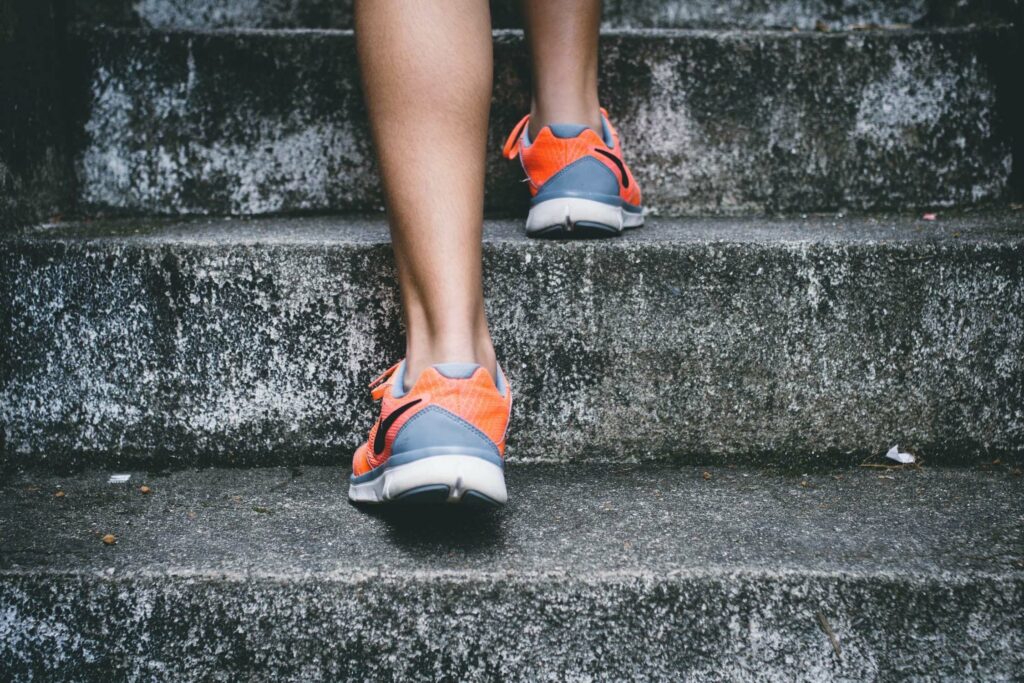
It’s Wednesday morning. Noel’s alarm goes off at 6:30 am. She usually sleeps until 7:30, but On Wednesdays and Fridays, she meets her trainer for their weekly workouts. Noel is not a morning person. She grumbles. She whines. She curses her alarm. Then, she rolls out of bed and goes to meet her trainer, begrudgingly.
Noel isn’t trying to lose weight. She just knows that getting in some regular body movement a couple of times a week is good for her, both physically and mentally. She can still toss back a few M&Ms, guilt-free. Plus, the endorphin and dopamine rush is great for her cognitive and emotional functions. So, she persists, even though 6:30 am is basically the middle of the night.
The Science Stuff
Most people know that dopamine and endorphins are types of hormones that are released when we do certain things. Exercise is one of those things. They aren’t just hormones though. They’re also neurotransmitters. This is just a fancy way of saying they tell your body what to do.
What is a neurotransmitter?
In simple terms, neurotransmitters are your body’s chemical messengers. They carry signals from one nerve cell to the next. These signals can be things like pain, touch sensations, movement, or even something as complicated as telling your heart to beat. Our bodies can’t survive without neurotransmitters.
What happens in our brain during a workout?
Endorphins are our fear or pain hormones, while dopamine is our “feel good” or reward hormone. These are each released when our body is engaged in a physical workout. As neurotransmitters, these hormones send pleasure messages to our brain that communicate that what we’re doing is good. Because endorphins are the pain hormones, when they’re released, pain and stress signals are reduced. Dopamine plays more of a motivational role. When it’s released, it sends signals that can be described as euphoric. This rush of “feel good” hormones serves as a reward to keep going, while the rush of endorphins can serve as a pain blocker for muscle cramps during your workout. Recent studies show that even more biochemicals and hormones play a role, too. Substances naturally produced during exercise, like endocannabinoids and serotonin, work the same way as endorphins and dopamine.
How is exercise beneficial to our mental health after we work out?
 Now that we know what happens during a workout, let’s talk about how exercise can help with your mental health after a workout. After all, waking up at 6:30 am just to feel good for 45 minutes wouldn’t be worth it for Noel, if it didn’t come with other benefits, too. Our body frequently operates on autopilot and purposeful movement gets our body and our mind out of autopilot. Those hormones we talked about earlier don’t just feel good during that initial rush. The release of these chemicals into our brains helps to increase hopefulness, concentration, and memory.
Now that we know what happens during a workout, let’s talk about how exercise can help with your mental health after a workout. After all, waking up at 6:30 am just to feel good for 45 minutes wouldn’t be worth it for Noel, if it didn’t come with other benefits, too. Our body frequently operates on autopilot and purposeful movement gets our body and our mind out of autopilot. Those hormones we talked about earlier don’t just feel good during that initial rush. The release of these chemicals into our brains helps to increase hopefulness, concentration, and memory.
Although scientists are learning more every day, Jenny Etnier, Ph.D. said recently in an interview with the American Psychological Association about exercise and its benefits on the brain, that “there is evidence that we see changes in the hippocampus, [which is] really important for cognitive performance and specifically for memory.”
Other post-workout mental health benefits that we can thank those hormone releases for include improved sleep, increased immune support, stress reduction, and decreased dependence on prescription drugs, to name a few.
Exercise Encourages Mindfulness
Aside from the chemical aspect of how exercise is beneficial to our mental health, it also promotes mindfulness. The engagement with our bodies and the needed awareness we have when exercising or moving to help us bring our awareness to the present moment plays a tremendous role in practicing mindfulness. Before we know it, we’re fully consumed by the next move our body requires of us. Where should my foot go? Which muscle is supposed to be engaged next? Physical movement creates spatial awareness which often takes us out of stress-patterned thinking and into the moment. When we are anxious, neurotransmitters and cognitions (thoughts) are operating in a pattern. Exercise requires our body to regulate. Our bodies cannot operate on an anxious autopilot.
Exercise helps us with mindfulness, reducing the strength of our thoughts. Brain control isn’t real, but awareness is. Exercise often helps us get unstuck from our thoughts. This is something that, as therapists, we often focus on in modalities like Cognitive Behavior Therapy (CBT) or Accelerated Resolution Therapy (ART). Although we certainly go more in-depth in a counseling session, physical movement and exercise are just about the best practice you can get. Those thoughts about failing, hopelessness or that worry that keeps coming up tend to move on more easily when the body is in motion and our attention needs to be in the present. The increased concentration we get from exercise can allow our brains to process more quickly to arrive at a thought that is neutral or even helpful, as opposed to self-destructive or constantly looping.
Steph “The Hammer” Roach, adaptive athlete, coach, Scottsdale gym owner, author, and cancer survivor (yes, all applicable titles!) says, “Exercise isn’t just about focusing on improving physique. I’ve been in the fitness game for over a decade and being physically active and choosing to move my body daily has helped improve my mental health. I am a better version of myself, for myself and the people around me, because I choose to engage in fitness.” Steph is a multiple-title woman who has motivated hundreds of thousands over the years with her fitness training. She does it all from her wheelchair while living with Cerebral Palsy and fighting cancer at the age of 26. Keeping her mental health in check through daily exercise and mindfulness has been paramount in her story. Spoiler, Steph is Noel’s trainer.
5 Tips to Get Started with Exercise When You’re Struggling
 Whether you’re a Steph (someone who loves working out) or a Noel (someone who does it begrudgingly), we all need a little help from time to time when it comes to getting going. We know how beneficial exercise can be for our mental health. So, we’ve put together five easy tips to help you get started when you’re struggling.
Whether you’re a Steph (someone who loves working out) or a Noel (someone who does it begrudgingly), we all need a little help from time to time when it comes to getting going. We know how beneficial exercise can be for our mental health. So, we’ve put together five easy tips to help you get started when you’re struggling.
- Start small and remember any break from the humdrum of your daily inactivity is better than nothing.
- Consider breathwork to start. Breathe in for four seconds. Hold for four seconds. Breathe out for four seconds. Hold for four seconds. Repeat four times.
- Find something that is enjoyable, a place, an activity, or a person.
- Schedule the time, don’t wait until you find it. Put it on your calendar.
- Allow yourself to have duality. “I am anxious, but this walk also feels good.” Or “I feel hopeless but accomplished.”
As always, if you feel like you need more help with anxiety or stress, MUV Counseling is here. You can read more about how to reduce anxiety through walking and talking. We also offer both Mindfulness Therapy and Walk + Talk Therapy (once the weather cools down). We believe that exercise is a great way to help reduce anxiety and stress and are here to help you in any way we can. Please reach out if we can help.



